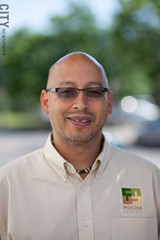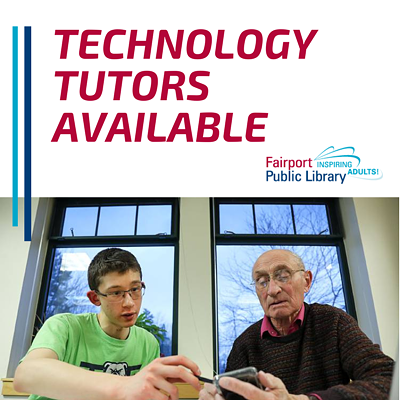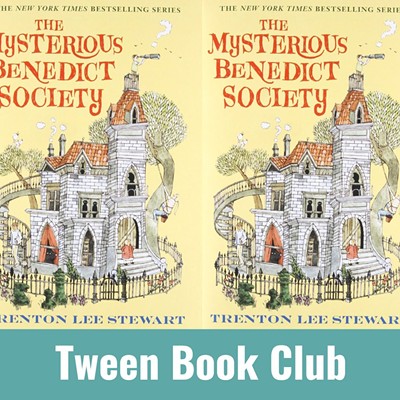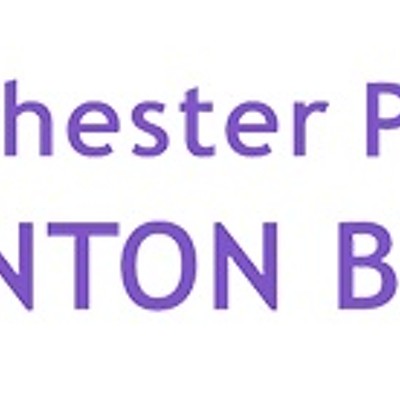[
{
"name": "500x250 Ad",
"insertPoint": "5",
"component": "15667920",
"parentWrapperClass": "",
"requiredCountToDisplay": "1"
}
]
For many in the LGBT community, the Supreme Court's decisions on the federal Defense of Marriage Act and California's Proposition 8 have been painfully slow in coming. The cases, Prop 8's ban of same-sex marriage in the Golden State and DOMA's denial of federal benefits to legally married same-sex couples embody an issue that has been at the forefront of the gay rights movement for more than a decade.
It was always expected that the fight for marriage rights would end up before the Supreme Court, activists say. But if you think marriage equality is the Rochester LGBT community's highest priority, you might be mistaken. It all depends on whom you ask.
As momentous as the Supreme Court's decisions are, some community leaders say that the fight for marriage equality has also exposed problems in the gay rights movement, and that it's time for re-examination. And regardless of the court's decisions on Prop 8 and DOMA, there are questions in the LGBT community about the future of the movement.
For starters: is the struggle over? Has the movement focused too much on one issue — marriage? How will organizations like the Gay Alliance of the Genesee Valley stay relevant? Where does the gay rights movement go from here? What about the needs of the LGBT community of color and the transgender community?
"I'm relying on the history of other movements," says Scott Fearing, acting executive director of the GAGV. "If you look at the civil rights, women's rights, and disability rights movements, there are victories and setbacks even to this day."
Fearing says he's cautious about believing the LBGT community finally has a seat at the table.
"Through the 1990's, there was a sort of flat plateau in women's rights," he says. "Now people are saying, 'Hey, wait a minute, there are still a lot of problems.' We're seeing that some of the bias and discrimination remains."
The same is true of the gay rights movement, he says. The HIV-AIDS epidemic helped unite the LGBT community 30 years ago, and in recent years, marriage equality has been a galvanizing issue. But that doesn't mean the movement is over, Fearing says.
"As an agency, we spent the last 40 years showing people how to survive," he says. "Now we need to show them how to thrive."
For the LGBT community, there's power in staying connected, Fearing says. And part of the GAGV's job is to show people why advocacy is still important.
"Yeah, if you live in many US cities, we're more accepted," he says. "But once you get out into rural areas of New York and other parts of the country into what I would call the broader American culture, we're still outsiders."
GAGV staff often does outreach to schools, businesses, and community groups. Fearing says he tells his staff that many of the people they meet fall into one of three political categories. The far right opposes anything to do with the LGBT community and gay rights, he says, while the far left is much more supportive. But the largest group, about 60 percent of the country, is in the political middle, Fearing says.
"I think that Middle America has heard us and they're becoming more accepting, and that's who we need to keep on speaking to," he says. "We need to move people from that middle column to the far left. And many of us have been working very hard at this for years. But we do represent change, and America doesn't always do well with social change."
A realtor's "for sale" sign hangs outside Open Arms Metropolitan Community Church, a small white building on Marshall Road in the Town of Chili. A flower garden in front of the church is giving way to a burst of weeds.
The church is relocating to downtown Rochester.
Open Arms is known for its diversity and large LGBT congregation, which has at times worried interim pastor, the Rev. Tom Decker. Open Arms' rainbow flag was removed by vandals, Decker says, and they've had a bomb threat.
Education has to be a bigger priority for the gay rights movement, he says.
"Yes, the focus has been on marriage equality," Decker says. "But it's not really about marriage. It's about basic human rights. It's about dignity. This is all about education. Giving people rights doesn't take away the rights of others."
Educating the broader American public is important, he says, but LGBT activists and community leaders can't ignore educating the LGBT community, either.
"Our teens are coming out at a younger age and they're more open," Decker says. "And they need to see our LGBT lives represented in curriculums in schools."
The GAGV's Fearing agrees. Younger generations in the LGBT community are losing touch with the gay rights movement's historical context, he says. Many young people don't know about Stonewall. They haven't heard of Harvey Milk, the first openly gay politician elected in California, or Matthew Shepard, a young gay man who was savagely beaten and killed outside Laramie, Wyoming. Shepard's death drew attention to hate crimes in the US.
"They don't know the enormous role he played in a major shift in American attitudes," Fearing says. "It was an awakening for America."
To begin addressing this issue, this year's Pride Festival will feature "Forging Alliances: Rochester's LGBT Story," a multimedia historical retrospective that examines the gay rights movement in Rochester. The exhibit will be housed in the former Canopies restaurant in Manhattan Square Park after the Pride parade on Saturday, July 20.
Perhaps the biggest concern about the marriage equality struggle is how it has overshadowed the LGBT community's diversity, some activists say. The LGBT community has matured since the gay rights movement began in the early 1970's; and now consists of a wider range of people and interests.
The thousand or so rights and privileges afforded to opposite-sex married couples that backers of same-sex marriage frequently hold up as evidence of inequality simply don't resonate with everyone in the community.
"While the gay marriage movement has, of course, been widely important and effective and involved people from myriad walks of life, aspects of it, at times, ignored certain people in favor of others," writes Richard Lawson for theatlanticwire.com. "The public face of the cause has largely been the same: white and at least middle class, which is a problem. The racial and economic disparities in the gay community are similar to those in larger America, but they also come with their own particular sets of issues, particularly youth homelessness and the spread of HIV-AIDS."
Among for many LGBT people of color, marriage is not high on the list of priorities, says Bruce Smail, executive director of MOCHA Center. The agency, which has offices in Rochester, Buffalo, and New York City, was formerly the Men of Color Health Awareness Project.
"We haven't had a political stance on it [marriage equality]," Smail says. "I don't think it has a direct impact on organizations like MOCHA."
For LGBT people of color, issues like housing and employment discrimination, access to affordable health care, and education are far more important, he says. While people may think these problems have been greatly reduced, Smail says, for LGBT people of color, they remain stubborn barriers.
California's Prop 8 might not have passed if LGBT activists had paid more attention to communities beyond West Hollywood and San Francisco, he says.
"It raised questions in the LGBT community of color," Smail says. "Whose civil rights are most important? Those bridges into other communities weren't built. They didn't have a strong coalition to combat the opposition. I don't think they [opponents of Prop 8] saw this coming."
The almost singular focus on same-sex marriage has largely ignored issues related to race, class, and violence, Smail says.
"Discrimination is multi-layered, including discrimination inside the LGBT community," he says. "In discussions around oppression, every individual, because of their status, is either privileged or they are targeted."
Few groups inside and outside the LGBT community are as targeted for violence and oppression as transgender people of color, Smail says — and what does marriage equality do for them?
Anne Tischer and Bess Watts can't walk more than a few steps into Equal Grounds, a café on South Avenue with a large LGBT clientele, without being stopped by friends and neighbors. The women call themselves "professional lesbians," a reference to their long history of activism.
Even though they are widely recognized in Rochester's LGBT community for their staunch support of marriage equality — they had a symbolic marriage ceremony in Washington Square Park in 2004 as an act of civil disobedience — they agree with Smail. Over the years, the Pride parade has essentially passed by certain people in the LGBT community, they say.
But in the post-SCOTUS era, they say, the movement isn't going to end. Instead, the LGBT community and activists are going to have to reassert themselves regarding basic needs, they say.
"We're going to go into a period of very hard activism," Tischer says. "We've got to push back on discriminatory practices in housing and employment."
And they say that even though there is less discrimination against some people in the community, acceptance is somewhat regional and could quickly dissolve.
The challenge, they say, is to cultivate a new, younger guard of LGBT activists.
"Trying to get people out to attend rallies and collect petitions is like pulling teeth," Tischer says. "Most LGBT people are unaware of their lack of basic rights until they're in a crisis."
And they say the hardest fight is still to come. Many LGBT activists want to continue with a strategy of addressing discriminatory practices, like bans on same-sex marriage, in a piecemeal manner. For instance: should the community pursue the Employment Non-Discrimination Act?
But critics of ENDA and piecemeal approaches say that some version of the ENDA bill has been making the rounds in Congress since the 1990's and has never gained any traction.
Since an addendum to the 1964 Civil Rights Act is almost impossible, would pursuing an all-encompassing LGBT rights bill be a better approach? Some activists say that would spark a national debate about LGBT rights, and would go a long way toward ending the treatment of lesbians, gays, bisexuals, and transgender Americans as second-class citizens.
"That's going to be the big fight," Tischer says.
.
Speaking of...
-
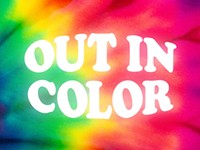
Calendar preview: Out in color
Jun 24, 2020 -

Feedback 9/5
Sep 5, 2018 -

The Pride Divide
Aug 15, 2018 - More »
Latest in News
More by Tim Louis Macaluso
-

RCSD financial crisis builds
Sep 23, 2019 -

RCSD facing spending concerns
Sep 20, 2019 -

Education forum tomorrow night for downtown residents
Sep 17, 2019 - More »

